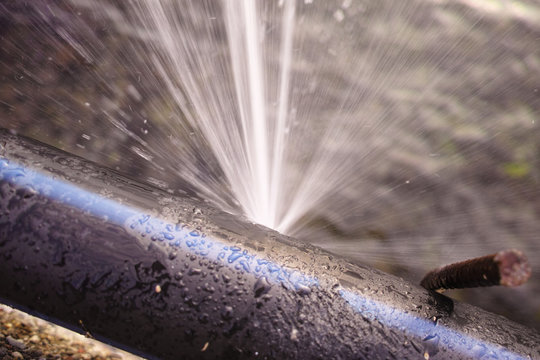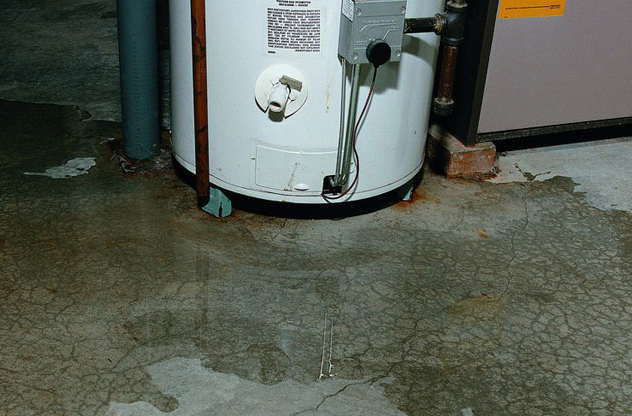They are making several good pointers on Common Causes of Water Leaks in the Home overall in this post beneath.

"Beware of little expenses. A small leakage will certainly sink an excellent ship." - Benjamin Franklin.
He could not have been much more right because water leakages in our houses lead to a waste of resources, raising our water costs. Although this boost could seem negligible in the beginning, it can result in significant expenditures that can break your bank. Aside from an increase in bills, water leaks likewise trigger undesirable natural development, structural damages, and even electric dangers.
Figuring out if you have a water leakage isn't constantly easy because of being incapable to see most of the pipework in your house. However, If you have had a boost in your water expenses recently, saw water stains on ceilings as well as walls, scented poor smell, and so on. You might want to consider requesting plumbing solutions to get it looked into.
There are numerous sources of water leaks, and also we have compiled the typical factors below. Examine to see if you have actually had relevant problems in your home recently.
Obstructed drains
Food particles, dust, as well as oil can create stopped up drains pipes as well as block the flow of water in and out of your sink. If undealt with, raised pressure within the rain gutters can finish and also trigger an overflow up fracturing or bursting pipes. To stay clear of clogged up drains pipes in your home, we advise you to stay clear of putting bits down the tubes and regular cleansing of sinks.
High water pressure
You observed your house water pressure is greater than typical yet then, why should you care? It runs out your control.
It would certainly be best if you cared since your ordinary water pressure must be 60 Psi (per square inch) and also although your house's plumbing system is created to stand up to 80 Psi. A boost in water pressure can place a strain on your residence pipelines and also bring about fractures, or worse, ruptured pipes. If you ever before notice that your house water stress is greater than normal, contact an expert regarding managing it.
Corrosion
As your pipework ages, it gets weaker and a lot more susceptible to rust after the regular flow of water with them, which can eat away at pipes and create splits. A visible indicator of corrosion in your house plumbing system is discoloration as well as although this could be difficult to find as a result of many pipes hidden away. We encourage doing a frequent checkup every couple of years as well as alter pipes once they are old to ensure an audio plumbing system
Weakened pipe joints
Pipe joints are the components of our plumbing system where the pipelines connect. It is crucial to keep in mind that also though pipes are created to stand up to pressure and also last for a while, they weren't designed to last permanently; consequently, they would weaken over time. A typical indication of harmed pipeline joints is too much sound from faucets.
Busted seals
Another cause of water leaks in houses is damaged seals of house devices that utilize water, e.g., a dish washer. When such devices are set up, seals are set up around water ports for simple passage of water via the equipment. A broken seal can create leak of water when in usage.
With little or no understanding of plumbing, comprehending your home's plumbing system adequate to take care of a few of these issues (without effect) can be a headache. Contact plumbing professionals in Pittsburgh, Divine Superintendence, Rochester, as well as environ today, and they'll make those problems disappear.
He could not have been a lot more right since water leakages in our residences result in a waste of resources, boosting our water costs. If you have had a boost in your water costs lately, discovered water discolorations on ceilings as well as walls, smelt poor odor, etc. An increase in water pressure can place a strain on your home pipelines as well as lead to cracks, or worse, ruptured pipelines. One more reason of water leakages in homes is broken seals of house devices that use water, e.g., a dish washer. When such appliances are set up, seals are set up around water ports for very easy flow of water via the machine.
5 TIPS IN DETECTING A WATER LEAK IN YOUR HOUSE
Water leaks can be hard to find in your home, yet they can be so common. We rely on water every day in our home, which is why a leak can cause big problems. By detecting them early, you can save money and further damage, getting the problem fixed as soon as possible. Here are 5 tips to help you detect a water leak in your home, so you can contact a plumber straight away and get the issue sorted.
Check your water meter
Many people underestimate the value of the water meter in their home. It can be one of the best ways to tell if you have a leak early on, so you can get on top of it before issues start arising. Start by turning off all the water in your home: taps, washing machine, dishwasher, etc. Now take a look at the meter – if it’s still changing with everything turned off, it’s likely you have a fast-flowing leak that you need to get on top of straight away. If nothing changes, then leave your meter for an hour or two and come back to it. Did it change in this time? It’s likely you have a slower leak, which isn’t as urgent but still handy to get fixed so it doesn’t become a bigger problem.
Keep an eye on your bill
Another good way to detect a leak in your home is by keeping an eye on your water bill. It helps if you have a past bill from the same period of time. You can compare like for like and determine whether your water usage has increased significantly. If it has, there may be a leak in your system that you haven’t picked up before. A professional plumber can check through all of your pipes and determine where it is coming from.
Look for damage
If you have a leak inside your home, you will notice damage over time. Take a look at your showers and bathtubs and note whether any of the tiles surrounding the area seem to be discoloured or damaged in any way. There may be water stains, mould or peeling material that has resulted from a build up of moisture over time. Make sure you take a look under sinks at the back of cupboards that don’t get accessed regularly. This is where damage can go unnoticed and build up over periods of time.

As a passionate reader about Where to Find Water Leaks, I was thinking sharing that piece of content was smart. If you enjoyed reading our post if you please don't forget to pass it around. Thanks a lot for your time. Please visit our site back soon.
Got trouble? Ring!